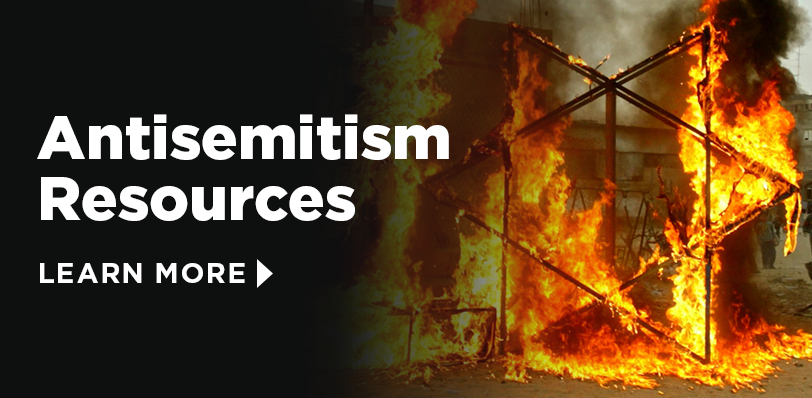How to prevent antisemitism
A condensed guide to prevent antisemitism from American Jewish Committee (AJC).
A condensed guide to prevent antisemitism from American Jewish Committee (AJC).
The following themes outline, in broad strokes, actions to help prevent antisemitism:
- Engage with the Jewish community | 37% of Americans do not know someone Jewish. Perhaps unsurprisingly, Americans who say they know someone Jewish are significantly more likely to view antisemitism as a problem, with 79% of U.S. adults who know someone who is Jewish saying so, compared with 64% of those who do not know anyone who is Jewish. If you live in an area that has a Jewish community, engaging with members of that community is a simple step that can be monumentally important not just for the Jewish community, but one that can then create inclusive, more secure, and resilient environments for all.
- Be prepared | A heightened awareness of the situations and times when antisemitism increases enables proactive planning to combat it. Antisemitism often rises during election cycles, around Jewish holidays, and during flare-ups in the Middle East. AJC’s State of Antisemitism in America 2023 Report revealed that 78% of American Jews who heard something about the Hamas terrorist attacks against Israel on October 7th, 2023, said the attacks made them feel less safe as a Jewish person in the United States. Community leaders, allies, and law enforcement should be on alert during these times and provide support to the Jewish community, as needed.
- Increase security and promote resilience | As long as Jewish communities are threatened by antisemitic violence, their security needs must be addressed. Increasing security is best accomplished hand-in-hand with bolstering Jewish community resilience, meaning that the Jewish community anticipates and responds to incidents, but more importantly withstands them and adapts. This approach will ensure the Jewish community not only survives, but thrives. It is about stability and structure as opposed to a continuous battle.
- Promote awareness and training | The importance of education in prevention cannot be overstated. Trainings—on Jews, the Holocaust, and antisemitism—provide an opportunity not only to show solidarity but to gain knowledge and tools to identify and respond to antisemitism. Programs to combat racism and intolerance provide an important framework, but they may downplay or ignore the problem of antisemitism. Because of its complexity, antisemitism should be addressed as a unique form of hatred. Finally, as misinformation spreads online and off, media literacy is increasingly important.
- Establish policies and create the right structures | Government, educational institutions, companies, and civil society can all craft policies and/or establish official structures to prevent and address antisemitic hate, prejudice, and conspiratorial thinking. Sustained action from all allies and partners is crucial.
- Ensure consequences | Government, educational institutions, companies, and civil society must also ensure there are consequences for antisemitism. If those who cause an unsafe environment for Jews are not reprimanded for their behavior, the antisemitism will continue unabated. It is important to remember that even if the intent of an action is not antisemitic, the effect often is. When considering consequences, focus on the impact on Jews (isolation, discrimination, exclusion, threats of danger, etc.). AJC’s State of Antisemitism in America 2023 Report can offer a national sense of the impact of antisemitism on American Jews; for example, 46% of American Jews avoided at least one behavior in the past 12 months out of fear of antisemitism.
We are all responsible for combating antisemitism.


